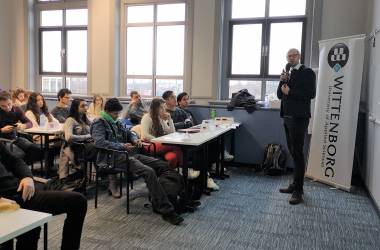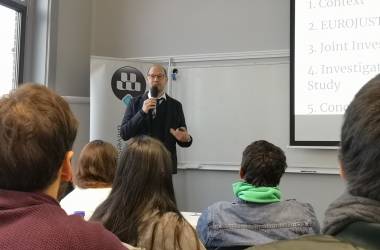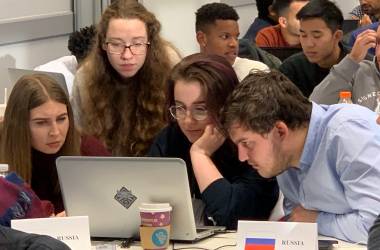Wittenborg Online News!
Lawyer from ICC Kicks off UN Simulation Talks
Financial Crimes on the Rise, ICC Lawyer tells Students Debating the Fight against Fraud, Corruption and Money Launderin
https://www.wittenborg.eu/lawyer-icc-kicks-un-simulation-talks.htm
A trial lawyer for the International Criminal Court (ICC) in The Hague, Dr Eike Fesefeldt, kicked off Wittenborg's Model United Nations (MUN) simulation exercise on Wednesday, daring about 170 international students to voice their opinion on financial crimes, money laundering and fraud happening across borders.
Wittenborg University of Applied Sciences has students from over 100 nationalities - making it an ideal setup for MUN which is an academic simulation of the United Nations. Students play the role of delegates from different countries and attempt to solve real world issues with the policies and perspectives of their assigned country.
At Wednesday's kick-off students were divided into 21 groups, with each group representing a country. Some students were in groups representing their "own" country, while others had to present countries other than their own, challenging them to make some interesting mind switches. This MUN exercised focused on ethics in business, politics and governance.
Fesefeldt, who was a prosecutor in Germany, stressed the importance of so-called Joint Investigation Teams (JIT) between European Member states in dealing with financial and tax crimes. "Financial crimes do not know any borders," he told students, citing various examples of cases where investigating teams worked together and also explained the laws governing these joint operations as well as the role of the bodies which see to it that they are executed and that operations run smoothly.
According to Fesefeldt financial crimes are unfortunately on the rise and that the Internet has made fraud and money laundering a lot easier for criminals. He also talked about how certain investigations in Europe sometimes require cooperating with non-EU states, but that not all of them are open to cooperation and there is also a high premium on their own sovereignty.
"For instance, it would make no sense for me to request cooperation from Russia or China because I know I will get no response. Sometimes however, some of these countries outside the EU surprise me. For example, I once got a lot of help from Togo, a country in West Africa."
Fesefeldt said one of the biggest examples of a Joint Investigative Operation was that of Malaysia Airlines Flight 17 (MH 17), a scheduled passenger flight from Amsterdam to Kuala Lumpur that was shot down on 17 July 2014 while flying over eastern Ukraine. All 283 passengers and 15 crew were killed - most of whom had Dutch nationality. Countries working together on this case included the Netherlands, Malaysia, Australia, Belgium and Ukraine. "The case is expected to be heard in January or February 2020 in Utrecht. None of the Russian defendants will be present so the trial will go ahead in absentia.
In conclusion, Fesefeldt said the freedom in the EU brings many criminal risks with it. "Organized crimes are making billions of euros in profit every year by circumventing national rules. One major crime is so-called VAT fraud. This pan-European problem can - to an extent - be countered by setting up JIT's."
WUP 18/12/2019
by Anesca Smith
©
WUAS Press
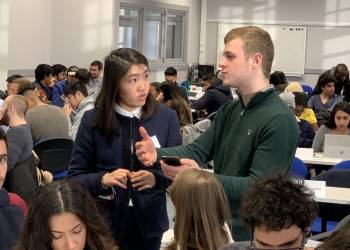
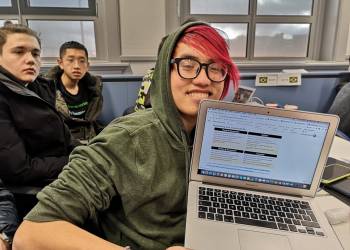
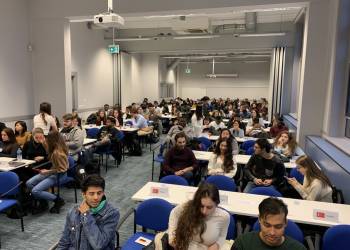
530 words
